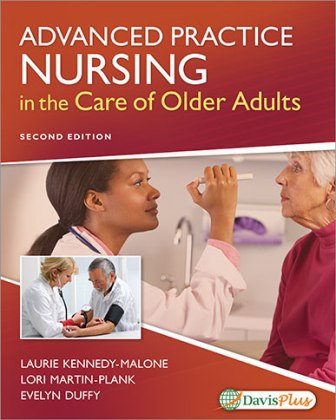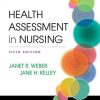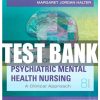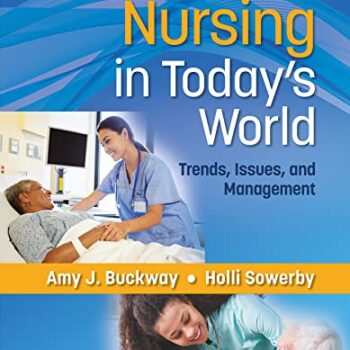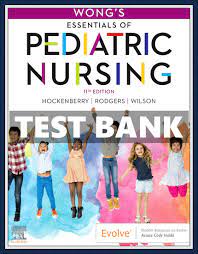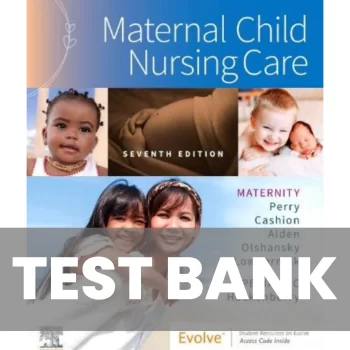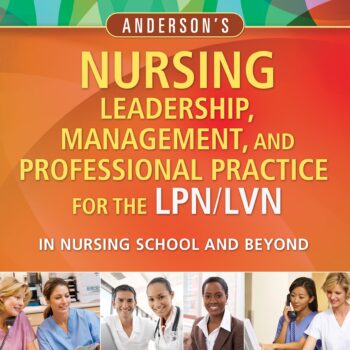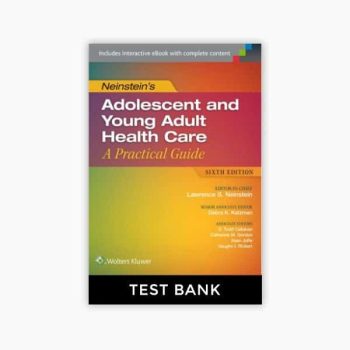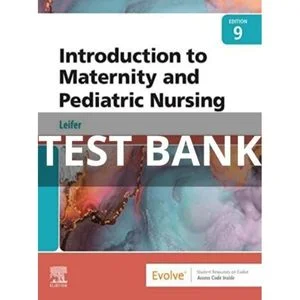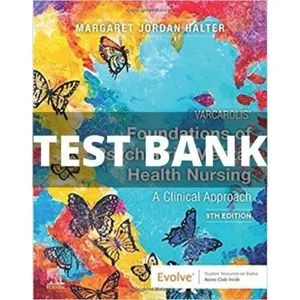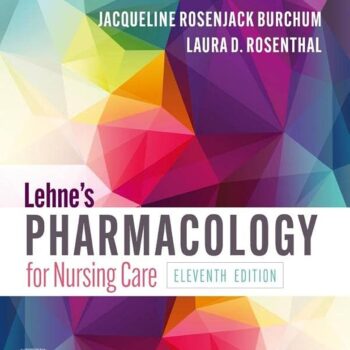We are excited to share that we now have the Test Bank For Advanced Practice Nursing in the Care of Older Adults 2nd Edition by Laurie Kennedy-Malone, Lori Martin-Plank, and Evelyn Groenke Duffy. This material will be helpful for nursing students and professionals who want to strengthen their understanding and perform better in their examinations.
Why is Test Bank Important
In order to understand the content of the textbook, the Test Bank is very useful. It has a variety of questions such as multiple choice questions, true and false, fill in the blank, and matching questions. In fact, by working with the Test Bank, you can assure yourself about important concepts like health promotion, geriatric assessment, as well as management of chronic diseases.
Key Issues in the Test Banks
Also, this Test Bank deals with various drug formulations, dosages, and therapy techniques that must always be considered with any patients, especially those aged over seventy. Some of the highlighted concepts are discussed below:
- Changes With Aging: Understand the physical and mental changes that exist in the elderly.
- Comprehensive Geriatric Assessment: How to perform a more accurate assessment to care for the respective patients.
- Polypharmacy: The practice of prescribing many medicines to elderly patients.
- Palliative Care: A broader and wider view on compassionate care at the end of life.
How We Benefit From Using The Test Bank
Through the use of the Test Bank, you will have the following merits:
Taking the above into account, how can the questions help you in the examination? The questions are similar to those which may be imposed on you during other tests. By solving these questions it builds your confidence.
- Brightening Up Your Mind: The variety of questions provided tends to reinforce your learning and more importantly understanding of difficult concepts.
- Flexibility: The Test Bank is available on your phone, so you can use it on the go, hence preparing is more convenient.
Why Choose Our Test Bank?
We make emphasis on the quality of the resources we provide to our clients. Advanced Practice Nursing in the Care of Older Adults Test Bank will enhance your learning process. With the ease of access to important questions and their answers, you will be ready to meet your academic demands.
Summary
In conclusion, the Test Bank For Advanced Practice Nursing in the Care of Older Adults 2nd Edition makes an excellent reference for any person working in the nursing profession. It brings out the ideal record of answer schemes that optimally suit various questions, provides an understanding of the main concepts covered, and helps one to target the aim during studies. You shouldn’t allow the opportunity to expand your possibilities and knowledge to escape you!
Test Bank For Advanced Practice Nursing in the Care of Older Adults 2nd Edition Kennedy-Malone
Advanced Practice Nursing in the Care of Older Adults 2nd Edition Kennedy-Malone Test Chapter 1. Changes With Aging• The nurse explains that in the late 1960s, health care focus was aimed at the older adults because:
- Disability was viewed as unavoidable.
- Complications from the disease increased mortality.
- Older adults” needs are similar to those of all adults.
- Preventive health care practices increased longevity.ANS: Increased preventive health care practices, disease control, and focus on wellness helped people live longer.DIF: Cognitive Level: Comprehension REF: 2 OBJ: 2TOP: Aging Trends KEY: Nursing Process Step: ImplementationMSC: NCLEX: Health Promotion and Maintenance: Growth and Development
- The nurse clarifies that in the terminology defining specific age groups, the term aged refers to persons who are:
- 55 to 64 years of age.
- 65 to 74 years of age.
- 75 to 84 years of age.
- 85 and older.ANS: CThe term aged refers to persons who are 75 to 84 years of age. DIF: Cognitive Level: Comprehension REF: 2, Table 1-1 OBJ: 1 TOP: Age Categories KEY: Nursing Process Step: ImplementationMSC: NCLEX: Health Promotion and Maintenance: Growth and Development
• The nurse cautions that ageism is a mindset that influences persons to:
- Discriminate against persons solely based on age.
- Fear aging.
- Be culturally sensitive to concerns of aging.
- Focus on resources for older adults.
ANS: AAgeism is a negative belief pattern that influences persons to discriminate against persons solely based on age and can lead to destructive behaviors toward older adults.DIF: Cognitive Level: Comprehension REF: 5OBJ: 3 TOP: Ageism KEY: Nursing Process Step: ImplementationMSC: NCLEX: Psychosocial Integrity: Psychosocial Adaptation
- The nurse points out that the most beneficial legislation that has influenced health care for older adults is:
- Medicare and Medicaid.
- Elimination of the mandatory retirement age.
- The Americans with Disabilities Act.
- The Drug Benefit Program.ANS: The broadest sweeping legislation beneficial to older adults is Medicare and Medicaid.DIF: Cognitive Level: Application REF: 16 OBJ: 6TOP: Legislation KEY: Nursing Process Step: Implementation MSC: NCLEX: N/A
- The nurse clarifies that a housing option for the older adult that offers the privacy of an apartment with restaurant-style meals and some medical and personal care services is the:
- Government-subsidized housing.
- Long-term care facility.
- Assisted-living center.
- Group housing plan.ANS: CAssisted-living arrangements offer the privacy of an apartment or condominium with meals prepared and served, limited medical care, and a variety of personal services.DIF: Cognitive Level: Application REF: 14 OBJ: 9 TOP: Housing Options KEY: Nursing Process Step:
Implementation MSC: NCLEX: Physiological Integrity: Physiological Adaptation
- The 75-year-old man who has been hospitalized following a severe case of pneumonia is concerned about his mounting hospital bill and asks if his Medicare coverage will pay for his care. The nurse’s most helpful response is Yes. Medicare:
- Pays 100% of all medical costs for persons older than 65.
- Part B pays hospital costs and physician fees.
- Part A pays for inpatient hospital costs.
- Part D pays 80% of the charges made by physicians.ANS: CMedicare Part A pays inpatient hospital costs, Part B pays 80% of physicians’ charges, and Part D helps defray prescription drug costs.DIF: Cognitive Level: Application REF: 16 OBJ: 6TOP: Medicare Provisions KEY: Nursing Process Step: Implementation MSC: NCLEX: Psychosocial Integrity: Coping
and Adaptation
- The daughter of a patient who has been diagnosed with terminal cancer asks which documents are required to allow her to make healthcare decisions for her parent. The nurse’s most informative response is:
- Advance directives indicate the degree of intervention desired by the patient.
- A Do Not Resuscitate document signed by the patient transfers authority to the next of kin.
- A durable power of attorney for health care transfers decision-making authority for health care to a designated person.
- A living will transfers authority to the physician. ANS: CA durable power of attorney for health care transfers the authority for decision-making to a designated person.DIF: Cognitive Level: Application REF: 19 OBJ: 11

